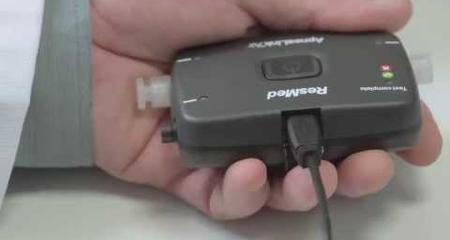- I don’t sleep as well as I should, but why is that a medical problem?
- How do I know if I am a good candidate for the Sleep Disorders Program?
- What happens during a sleep study?
- What if the CPAP mask doesn’t work for me?
- Can you help people with sleep problems even if they don’t have a breathing disorder?
- Does health insurance cover evaluation and treatment for sleep disorders?
- How long will it take before I can be evaluated?
I don’t sleep as well as I should, but why is that a medical problem?
Sleep is not just a quality-of-life issue. Chronic sleep deprivation and poor sleep quality pose serious risks to your health. One of the biggest concerns is obstructive sleep apnea, which has been strongly linked with high blood pressure, coronary artery disease, congestive heart failure, stroke and heart attack. Apnea may also play a role in diabetes. In addition, people with sleep apnea are three to seven times more likely than others to be in a car crash.
How do I know if I am a good candidate for the Sleep Disorders Program?
One of the most common — and commonly ignored — symptoms of a sleep disorder is snoring. If you snore, you should be evaluated for potentially serious airway obstruction, especially if you have a cardiovascular disease like high blood pressure. You should also get medical attention if your partner sees you stop breathing during sleep. Other symptoms that could point to a sleep disorder are excessive daytime irritability or grogginess, insomnia, feeling tired after 10 to 12 hours of sleep, several near-miss car crashes, and excessive leg movement, or tossing and turning at night.
What happens during a sleep study?
When you undergo a sleep study, you spend the entire night in a private room in the sleep center. Get sleep study information.
What if the CPAP mask doesn’t work for me?
Up to 90 percent of patients who receive a CPAP learn to tolerate it relatively well. Some people, however, are not able to make the device work for them. For these patients, the next step may be surgery. Surgical options for opening up the airway include reconstructive techniques, laser and radiofrequency procedures, and palatal implants.
Can you help people with sleep problems even if they don’t have a breathing disorder?
Yes. Patients with neurological disorders — like epilepsy, Parkinson’s disease, Alzheimer’s disease, multiple sclerosis and chronic pain — often have related sleep problems. The Sleep Disorders Program team includes a neurologist who specializes in helping patients who suffer from these diseases. The team also includes a rehabilitation psychologist who works with patients dealing with emotional/behavioral problems like insomnia and shift work disorder. The psychologist provides counseling and education on effective techniques for overcoming these problems.
Does health insurance cover evaluation and treatment for sleep disorders?
Individual insurance companies may require a referral from your primary care physician before you can be evaluated by a sleep medicine specialist. Diagnostic tests usually require pre-authorization, which our staff will do before scheduling any tests.
Medical treatment, such as medication and CPAP equipment, may require pre-authorization from your insurance company. We work with insurers in order to maximize the treatment choices for each patient.
Surgery to correct obstructive sleep apnea is usually covered by health insurance. Please check with your health insurance provider to determine your coverage.
How long will it take before I can be evaluated?
If your primary care physician has referred you to the Sleep Disorders Program, preauthorization typically takes two to three weeks.

